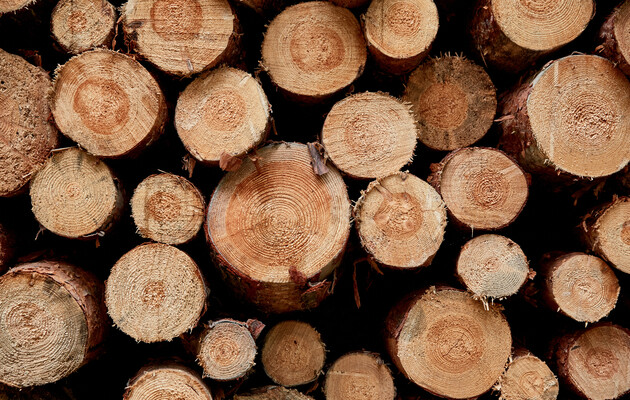Wooden window to Europe
The other day, the B4Ukraine coalition appealed to the European Union with a request to expand sanctions against the Russian Federation and Belarus in the process of preparing the next, already 12th, package. Special emphasis was placed on the need to ban the import of Belarusian wood products into the Union countries.
Belarus is an active accomplice of the Russian Federation in the war against Ukraine, and there is also a huge gap in the sanctions imposed on Russia. Even though she herself, as an ally of the aggressor, is under sanctions. And even if Lukashenko doesn’t help with the shadow tanker fleet, then with goods transported by land, and even the same share of exports, it will. In particular, with the supply of woodworking products.
Let us recall that back in the spring of this year, the Ukrainian parliament adopted a resolution of similar content, calling on the EU Council and foreign governments to impose sanctions on products made from Belarusian wood. However, the EU is in no hurry to listen to these requests.
Is it really possible that they underestimate the importance of this category of goods both for Belarus and for the Russian Federation, which, through a friendly neighboring country, continues to bypass even those minor restrictions that have already been introduced?
Or maybe European manufacturers’ access to cheap raw materials and products made from them is more important?
Belarus has long been not only politically, but also economically dependent on the Russian Federation. Without going into details, let’s look at the investment dependence of the Lukashenko regime on Putin. In 2022, Belarus attracted $7 billion in foreign investment, of which $6 billion was foreign direct investment. The largest investor is Russia (56.1%), followed by Cyprus (14.7%) and the Netherlands (4.1%), but often this is also Russian investment capital, simply transferred to non-sanctioned jurisdictions. And of the total $6.3 billion invested by Belarus abroad, as much as 87% went to the Russian Federation. That’s how close these economies are, and wood is one of their main common denominators.
The current sanctions imposed by the EU prohibit the import of wood from Belarus, but wooden furniture, pulp, and paper can be imported as much as you like. It’s somehow strange... As an Earthsight investigation has shown, the largest European furniture retailers continue to purchase Belarusian furniture, no matter what. Some types of wooden furniture from Russia, as well as a number of other wood products, are also not subject to sanctions.
Meanwhile, existing sanctions, in particular those imposed by the United States, are easy to circumvent. For example, there are schemes through which sanctioned Russian and Belarusian timber bypasses American sanctions and is present on the American market. Back in September 2022, Environmental Investigation Agency investigators discovered Russian birch plywood on the American market. It was passed off as Vietnamese or Chinese. The scheme works to this day, supplying good money to the Russian Federation’s large-scale war against Ukraine.
The sanctions imposed by the EU are no less easy to circumvent. According to OCCRP, Russian and Belarusian timber receives Central Asian registration and easily travels to the EU.
Thus, there is evidence that the Polish company PLRBL, a few months after the imposition of sanctions on Belarusian wood, entered into a contract worth 1.5 million euros with the Kyrgyz company Admit for the supply of wood pellets. The owners of the Kyrgyz company are Belarusians Dzyanis Pitko and Vladimir Miruk. Of course, these “Kyrgyz” take the wood from which these pellets are produced from Belarus and the Russian Federation, and Polish buyers know this for sure. Admit also works closely with Lithuanian companies.
Belarusian state-owned enterprises also participate directly in the schemes. To circumvent the sanctions, the Pinskdrev representative office in Kazakhstan registered a new company, Manufactura Plus, which successfully sells plywood to Lithuania, Poland, Bulgaria, Estonia, Hungary, and Latvia. The products of the Russian Vyatskaya Plywood plant travel around the world through Kazakhstan; of course, they are also no longer of Russian origin.
Business is booming: from June 2022 to January 2023 alone, sales of forest products from forest-deficient Kazakhstan to the EU increased almost 137 times. And from the same non-forested Kyrgyzstan – 12 thousand (!) times.
Timber traders do not particularly hide the fact that they are ready to issue any certificate of its origin, as long as the client is satisfied. And in Belarus there is even a separate service - the certification company StandartnoBy willingly helps everyone who wants to buy Belarusian or Russian wood and have “decent” documents for it.
In addition, the Russian and Belarusian timber and wood processing sectors continue to use machinery and equipment from Western companies, such as Komatsu and Liebherr. There are no restrictions at all.
And these are just separate episodes of a huge process.
In the first half of 2023, the EU imported furniture worth €97.2 million from Belarus (including wooden furniture worth €61.4 million). The main flow goes to Poland and Germany, followed by the Netherlands, Lithuania, Romania, Estonia, Latvia, and France. At the same time, furniture is the largest category of pre-war trade in the Republic of Belarus, which is still not subject to sanctions.
Note that all forests in Belarus are state-owned and all income from the sale of timber goes directly to the state treasury. Moreover, 8% of revenues from state forests go directly to Alexander Lukashenko’s personal fund – the Presidential Property Management Department.
It is curious why the EU banned the import of unprocessed wood and lumber from Belarus, but did not apply sanctions to final products?
All major European buyers know the answer to this question - price/quality ratio. As well as convenient logistics. After all, if you fill out the documents correctly, for example, on StandartnoBy, you don’t have to bring the timber to Kyrgyzstan and back.
And you don’t have to bother with this either. According to a Belarusian economist familiar with the state of affairs in the forest industry of Belarus (for obvious reasons, he asked not to be identified), some of their woodworking enterprises have long had their “representative offices” in the EU (similar to the “Kyrgyz” Pitko and Miruk). Here is the certification you need, including for Russian wood, which has been squeezed in among the Belarusian ones.
According to a Bellesbumprom official, after the introduction of sanctions, “the industry was able to cope with a serious challenge.” According to him, production volumes even increased by 5%, and not a single one of the concern’s enterprises (and there are four dozen of them), let alone closed, is even idle. Of course, there is demand.
Nothing personal, as they say... But such an attitude on the part of Western partners, who in words express all kinds of support for us, but in reality, turn a blind eye to blatant violations of their own sanctions with the direct participation of their own businesses, is depressing. And most importantly, it diminishes the importance (alas, not the key one) of these sanctions and their contribution to our victory.
Please select it with the mouse and press Ctrl+Enter or Submit a bug












 Login with Google
Login with Google